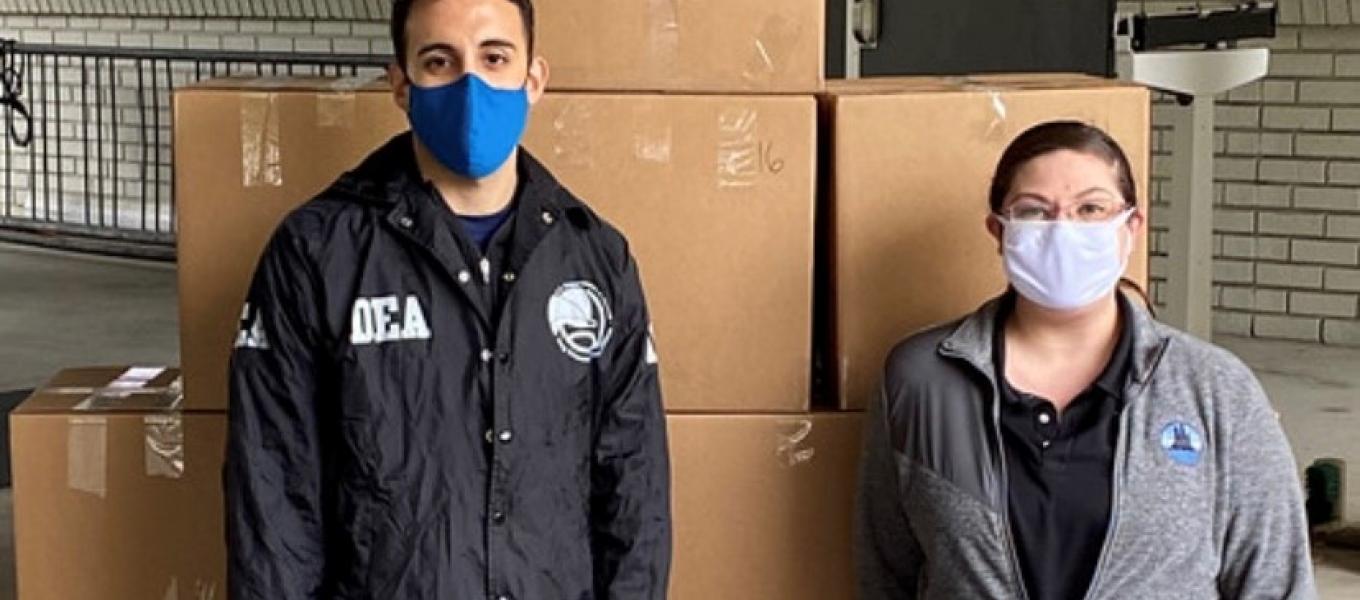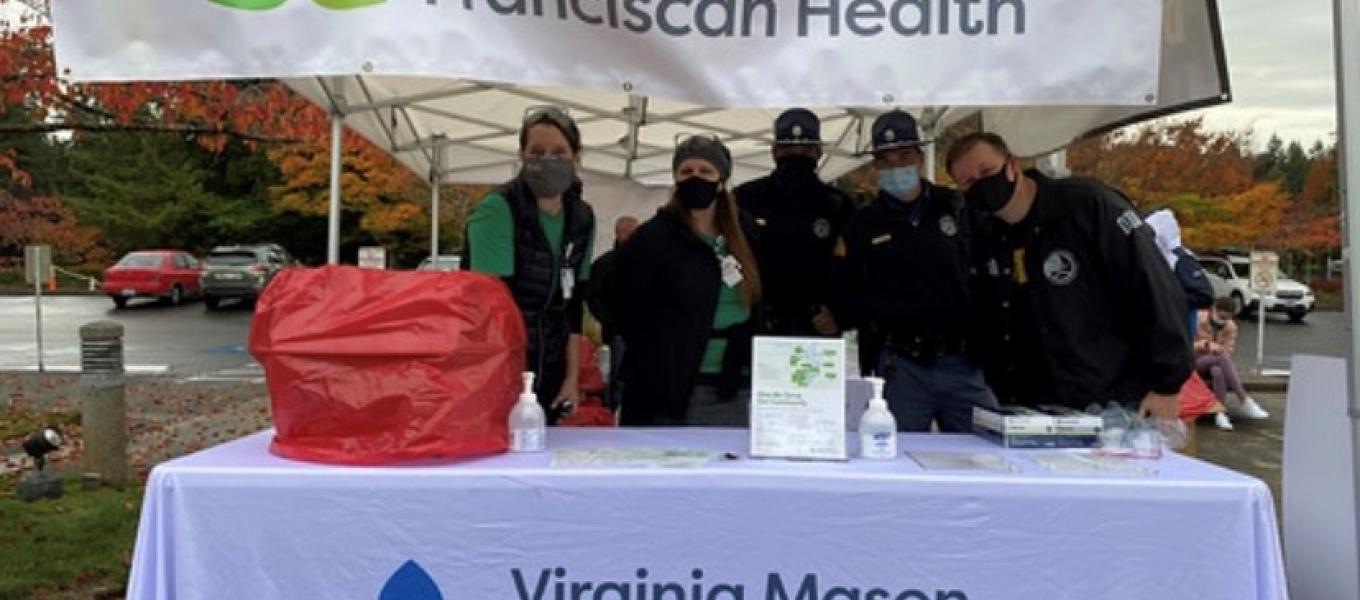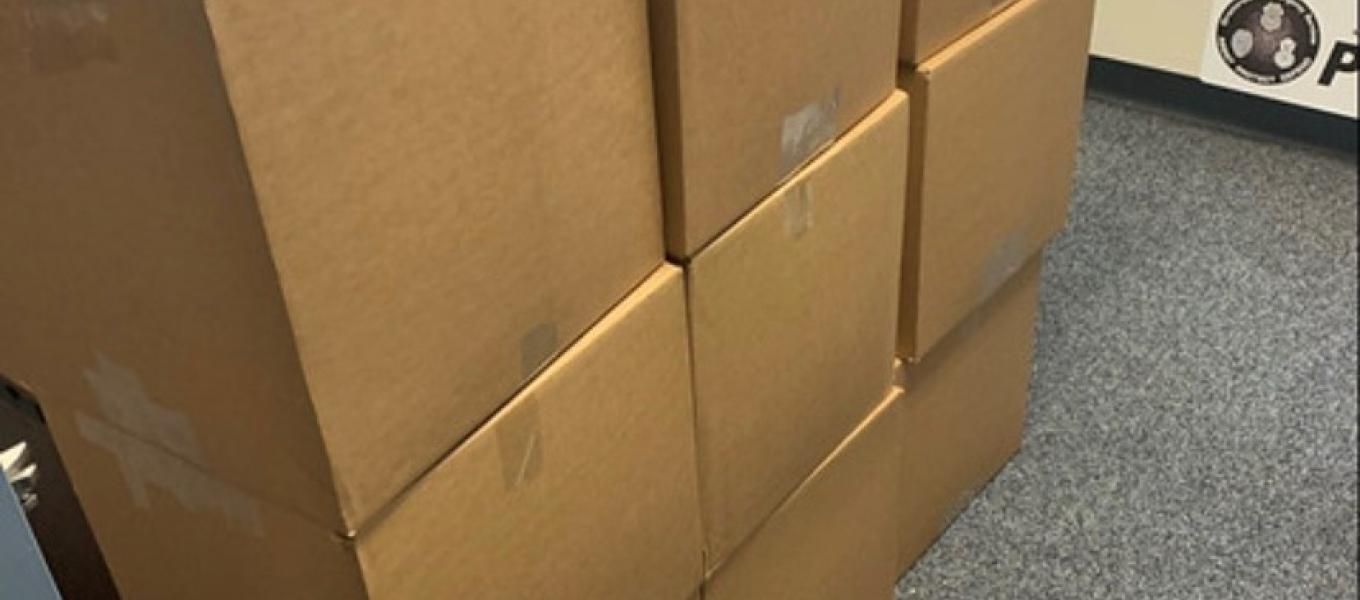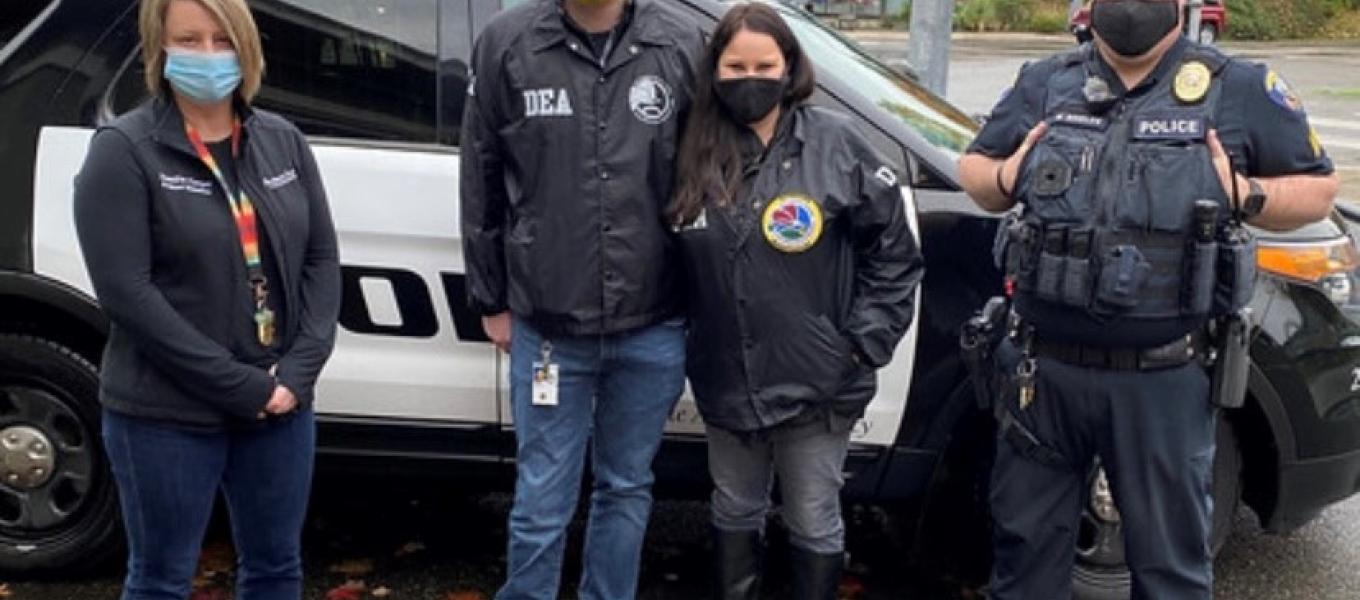DEA’s National Prescription Drug Take Back Day Brings in nearly 745,000 Pounds of Unneeded Medications
More than 22,000 pounds in WA OR ID AK

Mercer Island Police collected 149 lbs of unneeded prescription drugs, filling 9 boxes.

Healthcare workers from Virginia Mason Franciscan Health and Washington State Patrol troopers collected 205lbs. of prescription medication in Federal Way as part of the DEA's National Take Backed

JBLM collected 9 boxes, 164 lbs. of prescription drugs during the DEA's National Take Back

Bainbridge Island Police and the DEA Seattle Field Division collected unneeded prescription medication during National Take Back, 4 boxes,106.2 lbs.
SEATTLE – The Drug Enforcement Administration, along with its law enforcement partners, has removed close to 745,000 pounds of unneeded prescriptions from medicine cabinets across the country as part of DEA’s ongoing commitment to turn the tide against the U.S. opioid epidemic. Following last month’s 21st National Prescription Drug Take Back Day, the program has removed more than 15.2 million pounds of medication from circulation since its inception.
On October 23, with close to 5,000 collection sites nationwide, DEA and its more than 4,200 state and local law enforcement partners came together to help the public rid their homes of unneeded medications—those that are old, unwanted, or no longer needed—that too often become a gateway to addiction. These efforts align directly with DEA’s priority to combat the rise of overdoses plaguing the United States.
The Drug Enforcement Administration Seattle Field Division, which covers Washington, Oregon, Idaho and Alaska, had 147 collection sites. Those sites collected 22,618 pounds of unneeded prescription drugs. In addition, there were four collection sites with our tribal partners (three in Washington, and one in Oregon) collecting 171 pounds of prescription drugs.
State Number of Collection Sites Total Collected (pounds)
WA 72 9,380
OR 27 4,760
ID 30 4,668
AK 18 3,810
According to a report published by the Substance Abuse and Mental Health Services Administration (SAMHSA), a majority of people who misused a prescription medication obtained the medicine from a family member or friend. The Centers for Disease Control and Prevention reported that last year, more than 93,000 people died of drug overdoses in the United States, marking the largest number of drug-related deaths ever recorded in a year. Opioid-related deaths accounted for 75 percent of all overdose deaths in 2020.
“On DEA’s National Prescription Drug Take Back Day, communities across America came together to rid medicine cabinets of unneeded medications, helping to prevent prescription drug misuse,” said DEA Administrator Anne Milgram. “Take Back Day is a critical effort to curb the historic surge in U.S. overdoses. We know prevention starts at home. The simple step of clearing out medications that are no longer needed makes our homes safer, prevents prescription drug misuse, and, ultimately, can help save lives.”
“The DEA Drug Take Back is more important than ever and is a great opportunity for citizens of the Pacific Northwest to dispose of their unused, unwanted, or expired prescription medications,” said DEA Special Agent in Charge Frank Tarentino. “Last week, the DEA Seattle Field Division collected nearly 23,000 pounds of unneeded prescription drugs during National Drug Take Back Day to help keep our citizens and communities safe. Properly disposing of these medications helps prevent them from falling into the hands of our children.”
DEA’s Take Back Day program is more important than ever before. Last month, DEA issued a and launched the One Pill Can Kill public awareness campaign to warn Americans of a surge in deadly, fake prescription pills driven by drug traffickers seeking to exploit the U.S. opioid epidemic and prescription pill misuse. Criminal drug networks are shipping chemicals from China to Mexico where they are converted to dangerous substances like fentanyl and methamphetamine and then pressed into pills. The end result—deadly, fake prescription pills—are what these criminal drug networks make and market to prey on Americans for profit. These fake, deadly pills are widely available and deadlier than ever. Fake pills are designed to appear nearly identical to legitimate prescriptions such as Oxycontin®, Percocet®, Vicodin®, Adderall®, Xanax® and other medicines. Criminal drug networks are selling these pills through social media, e-commerce, the dark web and existing distribution networks.
Along with the alert came a warning that the only safe medications are ones prescribed by a trusted medical professional and dispensed by a licensed pharmacist. Any pills that do not meet this standard are unsafe and potentially deadly. DEA’s National Prescription Drug Take Back Day reflects DEA’s commitment to Americans’ safety and health, encouraging the public to remove unneeded medications from their homes as a measure of preventing medication misuse and opioid addiction from ever starting.
Complete results from DEA’s 21st National Prescription Drug Take Back Day are available at www.DEATakeBack.com. For those who missed DEA’s Take Back Day, there are opportunities to regularly and safely dispose of unneeded medications at more than 13,000 pharmacies, hospitals, police departments, and businesses working to help clean out medicine cabinets throughout the year.
###


